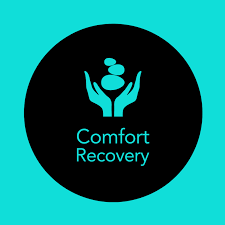Relapse can be a common challenge for individuals recovering from addiction, mental health disorders, or other behavioral issues. It is important to remember that relapse does not mean that recovery has failed. It is simply a setback that can be overcome with the right support and resources.
There are a number of things that individuals can do to help prevent relapse. Some of these include:
- Building a strong support system. Having a strong support system of family, friends, and other recovering individuals can be invaluable in preventing relapse. These individuals can provide encouragement, support, and understanding during difficult times.
- Identifying and avoiding triggers. Triggers are events, people, or places that can lead to cravings or urges to use drugs or alcohol. It is important to identify your triggers and develop strategies for avoiding them. Some common triggers include stress, boredom, negative emotions, and social pressure.
- Developing healthy coping mechanisms. Healthy coping mechanisms are positive ways of dealing with stress, boredom, and other difficult emotions. Some healthy coping mechanisms include exercise, relaxation techniques, spending time with loved ones, and engaging in hobbies.
- Practicing self-care. Self-care is important for overall health and well-being. It can also help to prevent relapse. Some self-care activities include getting enough sleep, eating a healthy diet, exercising regularly, and getting regular medical checkups.
- Being mindful of your thoughts and emotions. It is important to be aware of your thoughts and emotions. Pay attention to when you are feeling stressed, bored, or angry. These emotions can be triggers for relapse. When you notice these emotions, take a step back and assess the situation. What is causing you to feel this way? Are there any healthy ways to cope with these emotions?
- Setting realistic goals. It is important to set realistic goals for your recovery. Don’t try to do too much too soon. Start with small goals and gradually work your way up to larger goals. This will help you to stay on track and avoid feeling overwhelmed.
- Remember, recovery is a journey. There will be ups and downs along the way. If you do experience a relapse, don’t give up. Reach out for help, regroup, and commit to your recovery plan. With the right support and resources, you can overcome relapse and achieve long-term recovery.
Here are some additional tips for avoiding relapse:
- Attend regular therapy or counseling sessions. Therapy can help you to understand your addiction and develop coping mechanisms for dealing with triggers.
- Join a support group. Support groups can provide you with a safe space to share your experiences with others in recovery.
- Read self-help books and articles. There are many resources available that can help you to learn more about addiction and recovery.
- Take medication if necessary. Medication can be an effective treatment for addiction. Talk to your doctor about whether or not medication is right for you.
- Don’t be afraid to ask for help. If you are struggling with addiction, don’t be afraid to ask for help from your family, friends, therapist, or doctor. There is help available, and you don’t have to go through this alone.
Remember, recovery is possible. With the right support and resources, you can overcome addiction and live a healthy, happy life.
Media Contact
Company Name: Comfort Recovery LLC
Contact Person: John Hovsepian
Email: Send Email
Phone: 8184510748
Address:30851 Agoura Road Suite 102
City: Agoura Hills
State: CA
Country: United States
Website: comfortrecoveryllc.com

